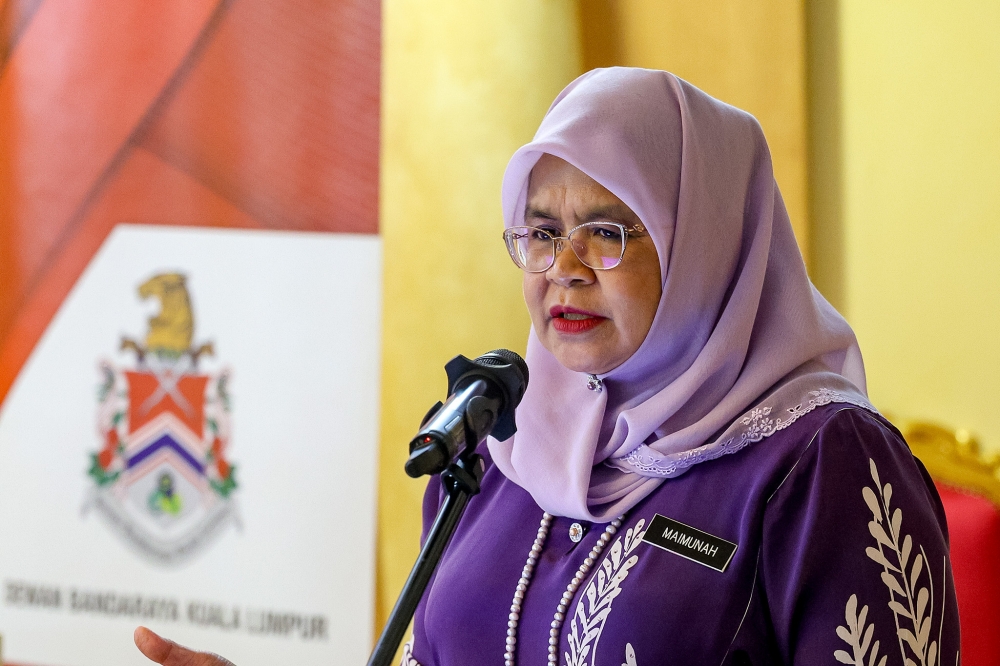
When KL mayor exits abruptly — Mustafa K. Anuar
Thursday, 20 Nov 2025 8:35 AM MYT
NOVEMBER 20 — The sudden exit of Datuk Seri Maimunah Mohd Sharif from her appointed position as Kuala Lumpur City Mayor on November 14 predictably sparked controversy.
She left long before the scheduled end of her tenure on August 16 next year. She then began her new job as Petronas Property Advisor on November 17.
Some were puzzled as well as disappointed that the competent Maimunah, who had shown remarkable leadership, had had her tenure cut short.
In particular, under her leadership, the Dewan Bandaraya Kuala Lumpur (DBKL) successfully overcame its deficit positions, recording a current surplus of RM27.6 million in 2024, compared to a deficit of RM75.3 million in 2023 and RM283 million in 2022.
Maimunah also managed to put DBKL on the world map through various initiatives, including strategic collaboration with Unicef under the Cash Plus Programme and Child-Friendly City Initiatives.
Her leadership had also earned her various prestigious national and international awards, such as the Best Local Authority Leadership Excellence Award (City category) 2025 in conjunction with the Ministry of Housing and Local Government Award.
She also received the “Women of the Decade” recognition from the Women Economic Forum and was the recipient of the Leadership Award 2025 from Fira de Barcelona at the World Smart City Expo 2025.
That is why people were taken aback when Maimunah was taken out of DBKL so soon as they felt that she had a lot more to achieve and offer at the helm of DBKL.
Former Cabinet minister and MP Nik Nazmi Nik Ahmad called on the government to clarify this abrupt termination.
Maimunah’s untimely exit also renewed interest in reviving local council elections, which were seen as crucial in ensuring transparency and accountability in governance at the local level.
MPs such as Nik Nazmi rightly contended that Kuala Lumpur residents should have a bigger say in how the city is run.
Such reactions were largely brought about by the historical fact that local council elections were suspended after Emergency was proclaimed in late 1964 following the Indonesia-Malaysia Confrontation.
Subsequently, the Local Government Act of 1976, which Parliament passed, abolished local government elections and allowed state governments to appoint councillors.
There were undoubtedly people who rejected the idea of resuscitating local council elections.
For example, Bersatu information chief Tun Faisal Ismail Aziz argued that DBKL election was unnecessary as what was needed was to headhunt someone who’s efficient and has creative ideas.
The thing is, we already had Maimunah who had proven to be capable and industrious, and yet she was shown the door before the designated time.
The detractors may argue that having elected councillors would not necessarily ensure the emergence of effective local councils as councillors can be incompetent, ineffective and quite possibly, corruptible.

The writer argues that Datuk Seri Maimunah’s sudden exit exposes the flaws of an unelected local government system long overdue for reform. — Picture by Firdaus Latif
If we were to follow through this argument, cynics may contend that we would have to do away with national and state elections as the past has shown that there were inefficient, ineffective and/or corrupt federal ministers and state executive councillors.
In addition, those who opposed having local elections cited high costs of holding them.
Responding to such an assertion, Asian legal studies scholar Andrew Harding argued that the inefficiency and disconnect at the federal and state levels of government were more costly than holding local elections.
What is also important for us to remember is that our democracy is incomplete without the third tier of governance, that is, local government.
It is envisaged that this is where local communities would have a say in helping to shape development in their localities together with the elected councillors.
Moreover, local councils provide the essential checks and balances in a democracy.
As intimated above, local councils have important functions to perform supposedly for the collective good of the local residents.
They are to manage public services and infrastructure, which includes urban planning, waste management, and basic amenities.
In this regard, clogged drains and potholes in the road should not be the worries of some MPs.
Also, the councils act as licensing authorities, collect assessment taxes, and enforce by-laws, with mandatory functions.
Public concern for a better public transport system, for example, should be prioritised by elected councillors to ensure that it benefits members of the public.
To reiterate, local councils should be answerable to the local taxpayers and residents, irrespective of their ethnic, religious and class backgrounds.
Councillors who do not perform or do not put enough emphasis on the interests and concerns of their constituents should be shown the door via the ballot box.
Local residents should have the democratic right to decide on the tenure of their councillors.
KL Mayor exits, NYC Mayor makes entrance, free busses and early morning wake-up calls ha3
ReplyDeleteZohran Mamdani, the new leader in New York, has announced that the Adhan will now be called openly through loudspeakers in mosques across America. (America?)
A promise is now a policy: The call to prayer will echo publicly in every mosque that wishes to do so a historic moment for Muslims in the U.S.
Allahu Akbar! Allah is raising His religion in places they never expected.
"They wish to extinguish the Light of Allah with their words, but Allah will perfect His Light even if the disbelievers hate it." (Qur’an 9:32)
https://x.com/cool_ustaz/status/1991180349565497436?s=46
Pretty soon all public benches in Central Park will be re-oriented to face Mekah, like the Ishmael Mayor of Birmingham city ordered recently.